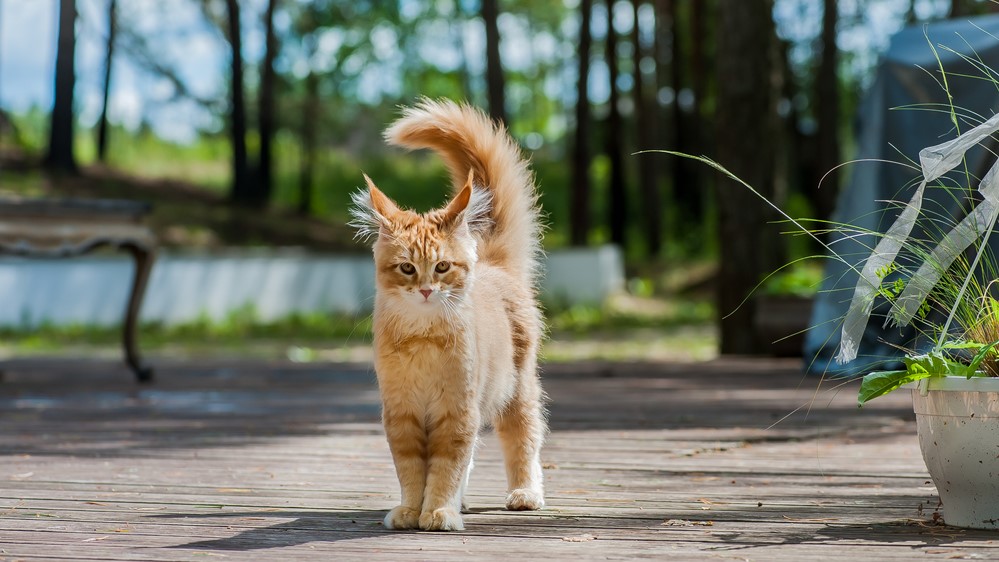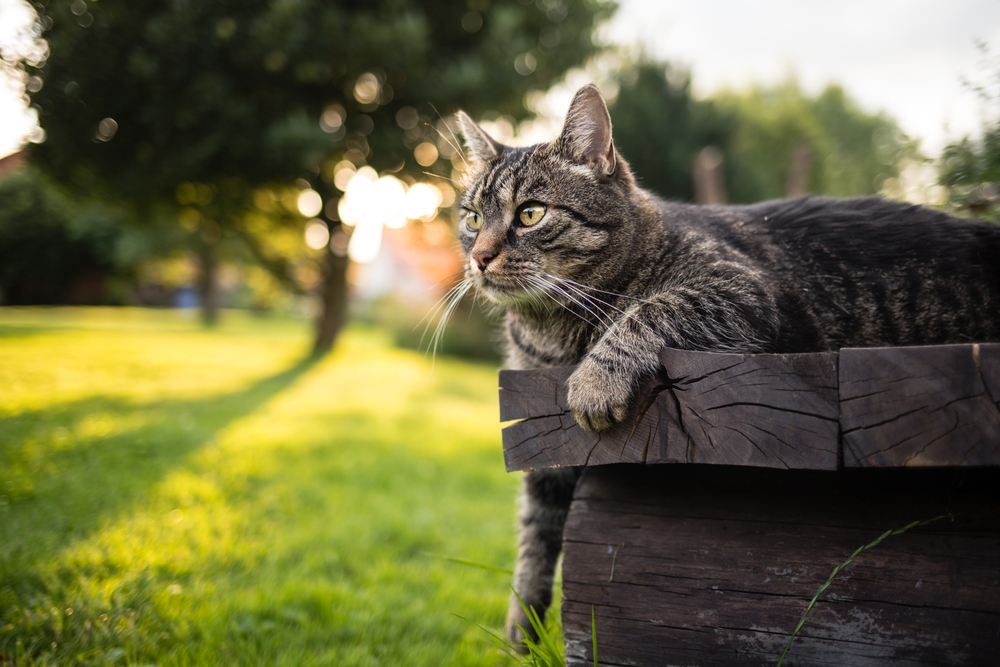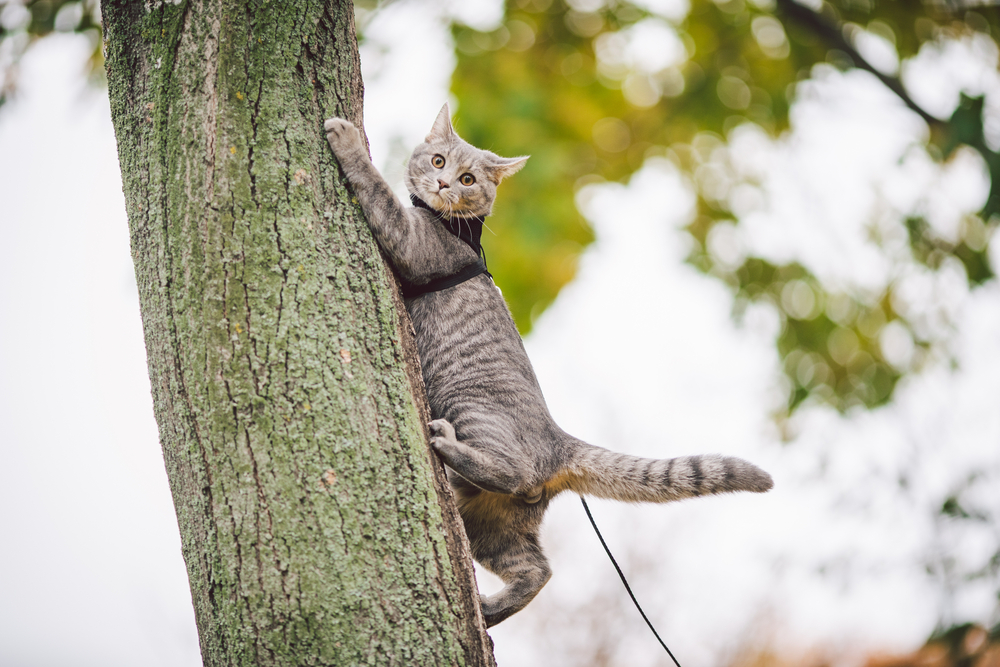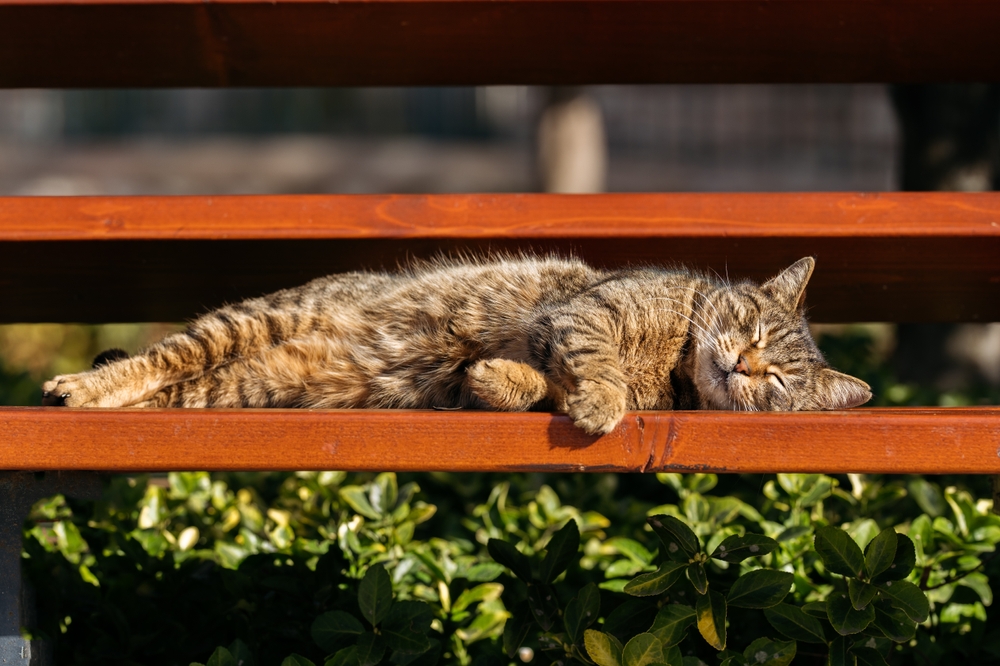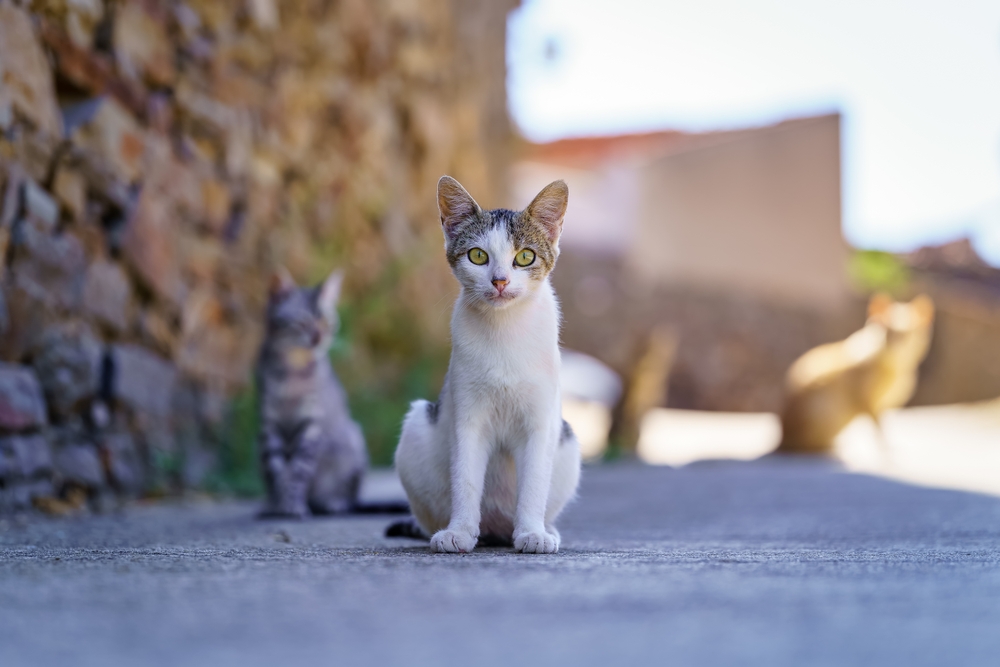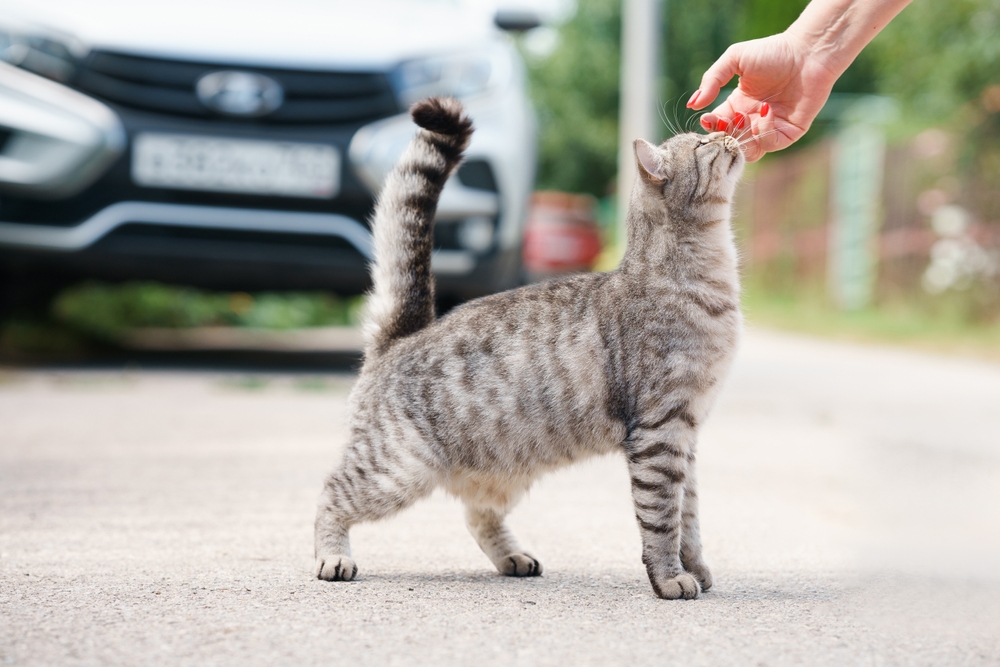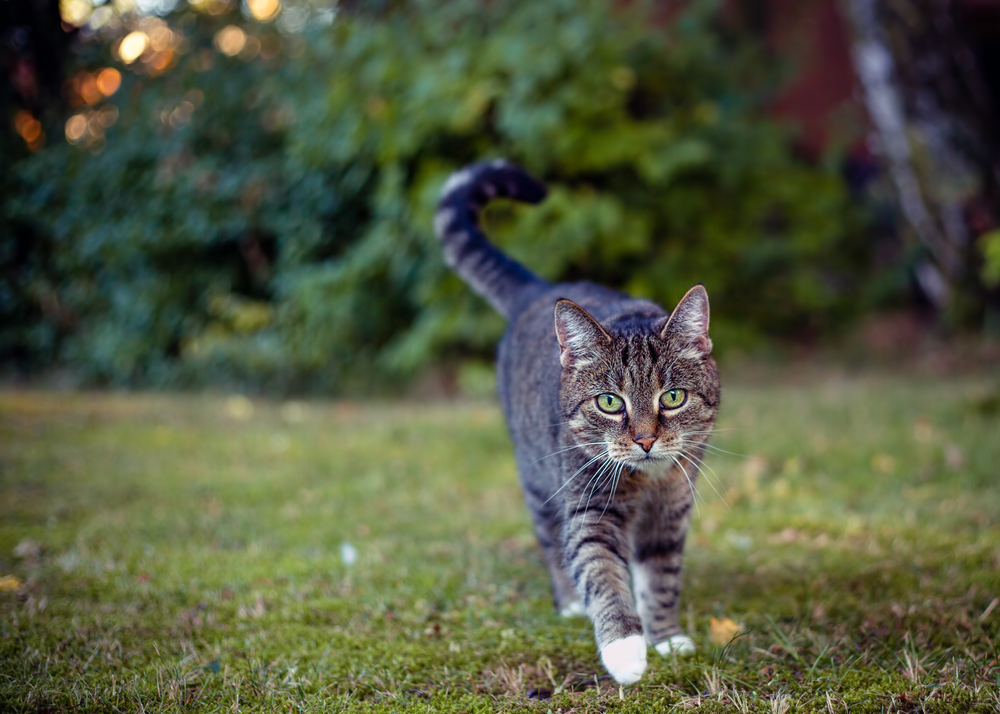📖 Table of Content:
I’m sure that like any responsible cat parent, you’ve imagined a scenario in which your furbaby manages to escape outside and gets lost. In those situations, you have probably wondered how long can an indoor cat survive outside.
It’s no secret that the great outdoors poses so many threats to our beloved fluffs. So, it’s normal that the majority of us believe that our favorite indoor feline companions can’t stand a chance against all the evil that’s lurking behind the safety of your home.
But are our kitties really in that much danger? Can getting lost outside seriously have severe consequences or be in any way detrimental to them? Let’s find out!
Why do indoor kitties run away?
Even though living inside a warm home where there is plenty of delicious food and interesting toys is more than amazing, every once in a while some indoor felines will get a strong urge to run away into the great outdoors.
That can happen because of several reasons. The first one is because something in their home scared them off. When a sudden loud noise, an unexpected guest (especially a canine one), or any type of change occurs in your home, your fluff might run away and seek a hiding place outside.
Another reason is if she’s in heat – fertile and able to get pregnant. If your cat isn’t spayed, she will start to exhibit heat-like behavior, like arching her back, rolling around, lifting her tail, and meowing very loudly.
In other words, she’ll try so hard to find a male partner, even if that requires running away from her home.
If your cat is already pregnant, and she does not feel safe in your home, she might escape and go outside in search of another, calmer and safer place to deliver her kittens.
Your cat might also run away if she is wounded or in pain. The majority of felines when they’re hurt tend to hide and deal with their pain on their own.
However, if you have taken your cat outside on your own, the reason why she might run away from you is because the territory she’s in is unfamiliar, and she simply needs to explore it. Think about it: she had been living indoors for some time, and all of a sudden she has this new hunting ground to inspect.
Do cats prefer the outside life?
Look, every feline is different in her own unique way, so it’s hard to give a definite answer to this question. Most of them love the great outdoors and will do everything to go on a quest to explore it, but some of them could not care less about what happens on the other side of the window.
Some cats prefer life inside their owner’s warm apartments and the mere view through a window or a nice lounging on their balcony can suffice. But other felines want more, and they’ll look for every chance they can to escape and see if those birds outside are really that special or not.
Does this mean you should risk and leave your fluff outside to determine what she actually prefers? Absolutely not!
If you think your cat will enjoy some time outside (which is something you can easily conclude based on her behavior in front of a window or front door) then you can take her out, but keep her on a harness or build her a catio (a fancy word for cat patio).
Or, if you have no conditions to make a catio, you can always DIY a cat-proof balcony and keep your kitty safe.
Why is the great outdoors so dangerous for our indoor fluffs?
Now, you might be wondering, “Why is going outside so dangerous for my indoor kitty?” Well, here’s why.
First things first – unwanted pregnancy. If your queen cat isn’t spayed, she will most definitely get pregnant outside, which is something that can make her life in the wild ten times harder.
Secondly, traffic accidents. Even though cats are pretty fast and can avoid pretty much anything, sometimes they are not the best at estimating how long it will take them to cross the road, or they simply get paralyzed with fear when they come face to face with a car.
Other reasons include different diseases, pests, getting lost, or experiencing extremely low temperatures.
If a kitty is used to the warmth of a loving home but doesn’t end up finding a warm shelter outside during the colder months, then she might not survive long on the street.
She will most likely suffer from hypothermia, which is a condition that occurs when the body is exposed to extreme coldness, which consequently forces it to lose heat faster.
If it’s the middle of the winter and extremely cold outside, like 45 degrees or below, an indoor kitty may not survive more than 5 days.
Besides, living outside shortens any cat’s lifespan. On average, an indoor kitty can live anywhere between 15 and 17 years, while outdoor cats very rarely get to have 5 years of their life.
How long can an indoor cat survive outside?
Above we have mentioned an extreme example of indoor felines not being able to survive an entire week outside during winter. But now we have to answer: How long can an indoor cat survive outside in average temperatures?
To be honest, the answer is not that promising. Although there are some wonderful stories of fluffs who after a long time managed to find their way back to their owners, the average indoor cat will survive outside for several months or up to a year.
This is because indoor felines are not used to actual hunting (yup, unfortunately, playing with their toys doesn’t count). Sure, hunting is a part of their nature, but the theory is far different from the practice.
And also, there are a lot of strays and ferals outside who are not the biggest fans of intruders. So, if an indoor baby isn’t really belligerent, she will most definitely struggle to survive outside.
But fear not. No matter their privileged starting positions, indoor cats are still – well, cats. They are natural survivors, fighters, and hunters, and they are great at hiding from their predators. They can learn on the go and find out how to fend for themselves.
Can an indoor cat come back once she runs away?
Many cat experts claim that all cats have a strong homing instinct, or in other words, the ability to return to a certain place or territory after traveling away from it.
They also have a great sense of smell. Wherever they go, no matter how far, our beloved feline friends leave their scent markers thanks to which they can trace their way back home.
And on top of that, they have a great sense of direction, too. They have a strong feline compass and are able to sense Earth’s magnetic fields, which helps them to stay fixed on their home, no matter how far it is.
All this indicates that an indoor feline can in fact come back once she runs away. What a relief, right?
Last year, my sister and her husband decided to go up the mountain and take their cat with them. They heard a dog barking, and because they did not use the harness, their kitty got scared and ran to look for a place to hide.
They looked everywhere for her, but when it grew darker, they had to give up and go home without her. They came back the next day, and the day after, they put out flyers around their city and shared them online. But the cat was nowhere to be found.
One day, exactly 40 days later, my sister’s friend saw her cat roaming around the city, in not-so-good condition, and obviously extremely frightened. It turned out that she found her way down the mountain and into the city, and luckily was found by someone who recognized her.
My sister was overjoyed! We all were!
So, if you’re wondering whether cats remember where they live, the answer is a resounding yes.
Is outdoor time necessary for our indoor fluffs?
After all of this, you might be wondering, “If cats have a strong urge to explore the great outdoors, does that mean that taking her out every once in a while is necessary?”
Well, not really. Indoor felines do not need to be taken outside in order to feel better or healthier. They can live their best feline life right inside your home.
Sure, she might want to go out, but you have to remember that the important thing is what is good and safe for her, and not what she wishes to do.
Your kitty also probably wants to jump out of the window of your seventh-floor apartment in order to catch the flying birds, but letting her do that would be considered crazy.
As long as she’s well-fed, taken regularly to the vet, played with, and above all loved, she’ll be just fine without ever stepping her little paw outside.
